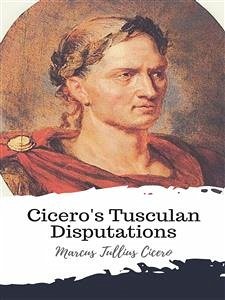How many men and women who have lived more than 2,000 years ago have impressed us with their humanity? We tend to see the statuary, but rarely the person behind it. When you read this outstanding title, you see that Marcus Tullius Cicero has a human face -- and it shows in his work. The Roman Republic that Cicero loved was falling apart. Marius and Sulla, the Gracchi, the conflicts over the powers of the tribunes had dealt a severe blow to a form of government that had proved itself adequate for governing a city-state, but less so for managing a multi-cultural empire. Cicero fought valiantly against corrupt governors like Verres ("Against Verres") and would-be dictators like Marc Antony ("2nd Phillipic Against Antony"). When he finally threw in his lot with Pompey, he picked the wrong horse and put himself in harm's way.
Bitte wählen Sie Ihr Anliegen aus.
Rechnungen
Retourenschein anfordern
Bestellstatus
Storno









